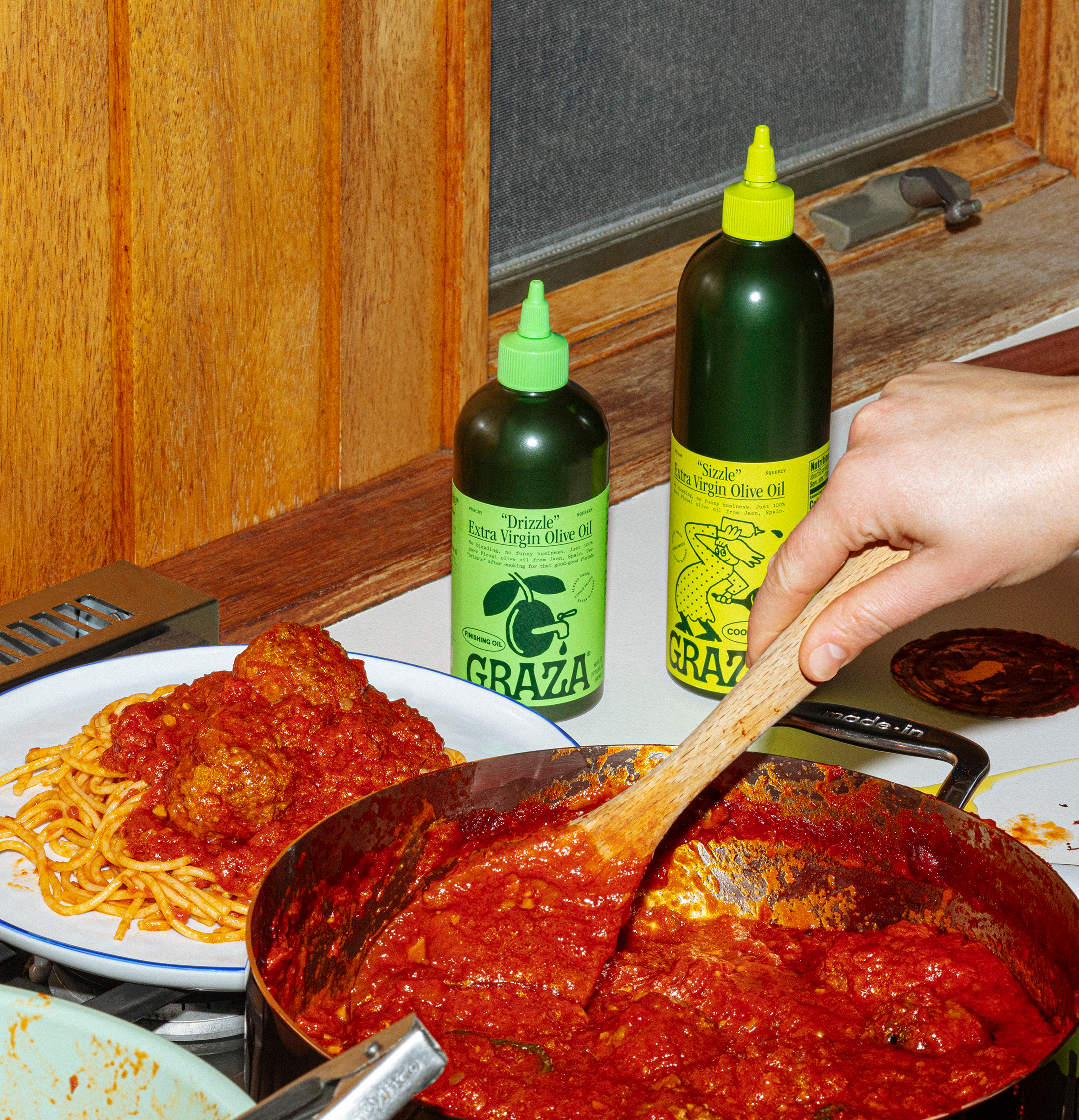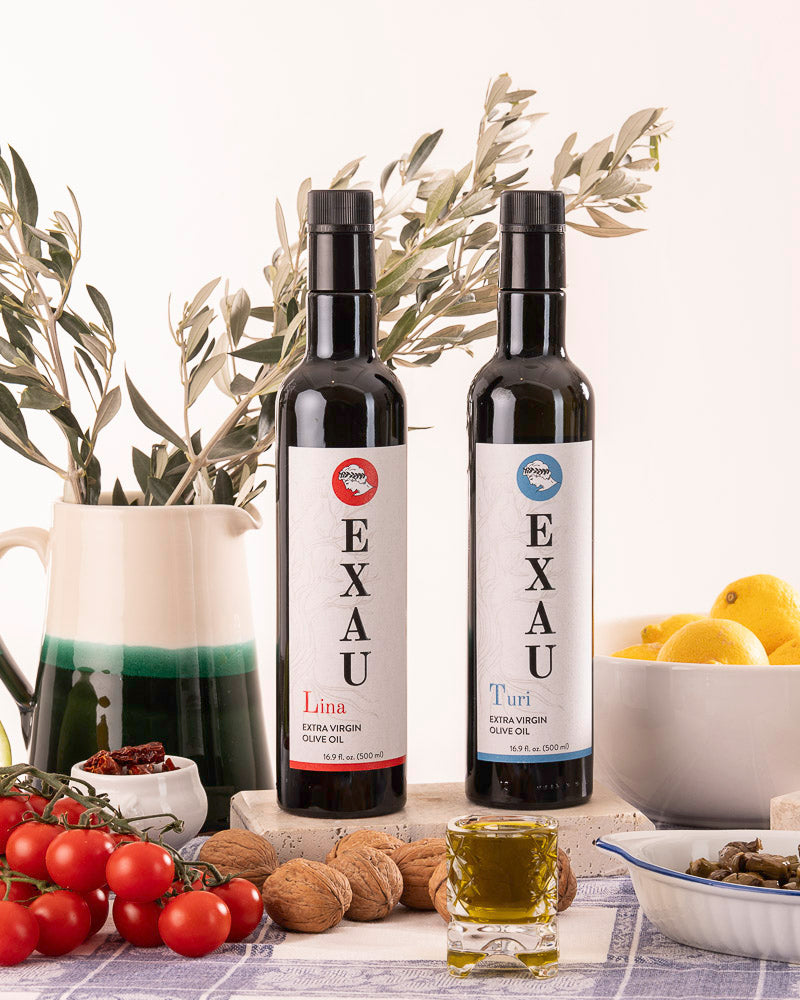Checking Out the Various Types of Olive Oil and Their Usages, Consisting Of Bonus Virgin Olive Oil
The expedition of olive oil includes a diverse variety of kinds, each offering unique flavors and culinary applications. Bonus virgin olive oil, renowned for its remarkable top quality and health and wellness advantages, serves as a staple in several kitchen areas, yet it is only one aspect of this diverse active ingredient.
What Is Olive Oil?
Originated from the fruit of the olive tree, olive oil is a staple in Mediterranean food and a crucial component in different cooking applications. This versatile oil is generated by pushing entire olives, resulting in a fluid that differs in fragrance, color, and taste relying on the kind of olives made use of, the region of growing, and the removal procedure. Olive oil is mostly made up of monounsaturated fats, specifically oleic acid, which is recognized for its prospective wellness advantages, consisting of anti-inflammatory residential properties and cardio support.
In enhancement to its cooking uses, olive oil has a lengthy background of application in typical medication and skin care, owing to its abundant antioxidant material (extra virgin olive oil benefits). The oil is typically used in dressings, sauces, and for cooking approaches such as sautéing and roasting. Its unique flavor account can improve the preference of various recipes, making it an important ingredient for both home cooks and specialist chefs
Moreover, olive oil is commemorated for its duty in the Mediterranean diet, which is connected with many health and wellness advantages. As recognition of these benefits grows, olive oil remains to get popularity worldwide as an essential component of a healthy and balanced way of life.
Kinds Of Olive Oil
Recognizing the various types of olive oil is essential for both health-conscious consumers and culinary enthusiasts. Olive oil is classified largely based upon its extraction approach and high quality, which considerably affects its health, aroma, and taste advantages.

Light olive oil, regardless of its name, refers to a lighter flavor and not lower calories. It is perfect for those seeking a more refined preference in dressings and sauces. In addition, there are flavored olive oils instilled with herbs, spices, or citrus, which can boost dishes without the need for added flavoring.
Each kind of olive oil offers certain cooking objectives, and recognizing these distinctions permits consumers to make educated choices that align with their food preparation styles and health and wellness goals.
Bonus Virgin Olive Oil
Bonus virgin olive oil (EVOO) is commonly considered the finest olive oil offered, popular for its abundant flavor and numerous wellness advantages. To be identified as extra virgin, the oil has to be created from fresh olives making use of mechanical processes, without the use of solvents or excessive heat. This precise approach maintains the oil's natural flavors, antioxidants, and healthy fats, leading to an item with a reduced acidity level of less than 0.8%.
EVOO is abundant in monounsaturated fats, specifically oleic acid, which is linked to decreased inflammation and improved heart health and wellness. It also consists of polyphenols, effective anti-oxidants that may provide safety results versus persistent illness. The flavor account of EVOO can differ dramatically depending upon the olive range and area of production, ranging from grassy and fruity to durable and peppery.

Culinary Use Olive Oil

In cooking, olive oil can be made use of for sautéing, toasting, and cooking, supplying a healthier choice to butter or various additional reading other fats. Its high smoke point makes it ideal for numerous cooking approaches, while its antioxidants add to a heart-healthy diet. Sprinkling olive oil over completed meals, such as pasta, fish, or smoked veggies, can elevate flavors and add a touch of elegance.
In addition, olive oil plays a substantial duty in cooking, where it can change traditional fats in dishes for bread and pastries, passing on moisture and a refined preference. It also works as a base for infused oils, allowing cooks to experiment with tastes such as garlic, natural herbs, or chili, further expanding its culinary capacity. In general, olive oil's versatility makes it indispensable in both home and specialist kitchen areas.
Choosing Top Quality Olive Oil
When choosing top quality olive oil, it's important to think about a number of essential variables that affect the item's health and wellness, flavor, and scent benefits. Opt for added virgin olive oil (EVOO), which is obtained from the first cool pressing of olives and contains the highest possible degrees of antioxidants and valuable substances. Look for oils that are certified by acknowledged companies, as this typically guarantees adherence to stringent quality standards.
The packaging additionally plays a significant role in maintaining the oil's stability. Select oils saved in dark glass containers or tins to protect versus light deterioration. Take note of the harvest day; fresher oils supply premium taste and nutritional worth, so pick products that are within 18 months of their harvest.
Be aware of the taste; an excellent quality olive oil ought to have an equilibrium of fruity, bitter, and peppery notes, showing its richness and complexity. By examining these factors, you can guarantee you are selecting the finest olive oil for your culinary requirements.
Final Thought
In summary, the exploration of different types of olive oil discloses site distinct characteristics and applications, with added virgin olive oil representing the peak of quality due to its reduced level of acidity and high antioxidant content. Its flexibility in cooking click for more info uses enhances tastes in dressings, marinates, and sprinkles. Comprehending the various varieties of olive oil permits informed options in cooking techniques, promoting healthier methods while enriching the general gastronomic experience. Quality option stays critical for optimal benefits.
Acquired from the fruit of the olive tree, olive oil is a staple in Mediterranean food and an essential active ingredient in numerous cooking applications.The most typical kinds of olive oil include refined olive oil, pure olive oil, and light olive oil.Additional virgin olive oil (EVOO) is widely regarded as the highest quality olive oil readily available, renowned for its rich taste and numerous wellness benefits. Opt for extra virgin olive oil (EVOO), which is obtained from the first chilly pressing of olives and consists of the highest possible degrees of anti-oxidants and useful compounds.In recap, the exploration of numerous types of olive oil exposes distinctive features and applications, with extra virgin olive oil standing for the peak of top quality due to its low acidity and high antioxidant web content.